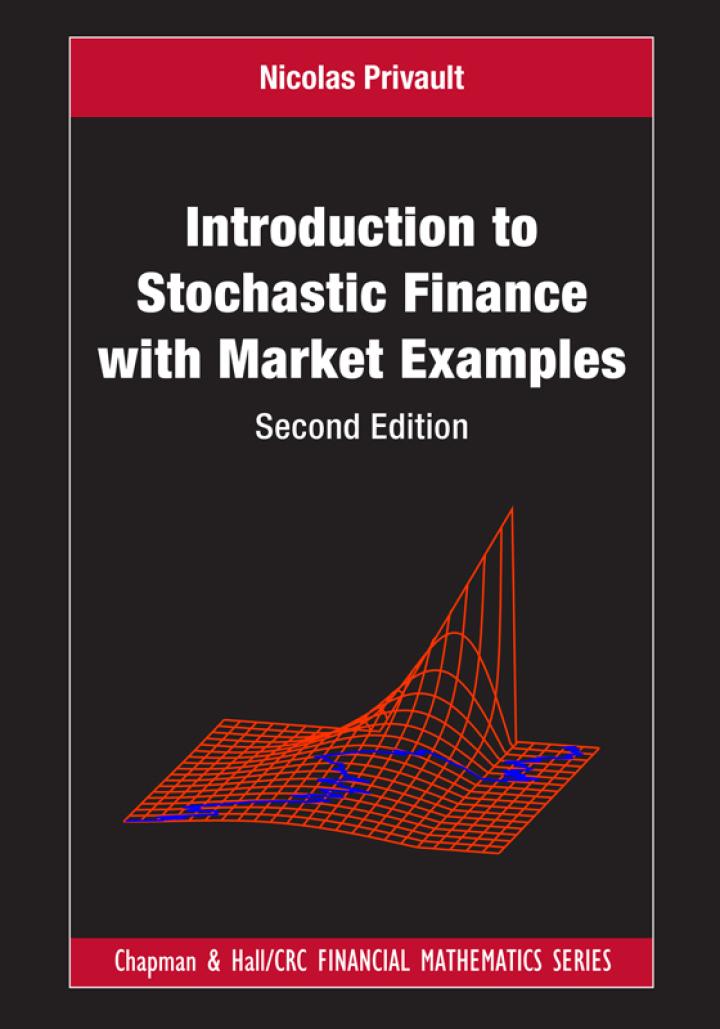Consider an underlying asset price process written as [S_{t}=S_{0} mathrm{e}^{r t+sigma widehat{B}_{t}-sigma^{2} t / 2}, quad t
Question:
Consider an underlying asset price process written as
\[S_{t}=S_{0} \mathrm{e}^{r t+\sigma \widehat{B}_{t}-\sigma^{2} t / 2}, \quad t \geqslant 0\]
where \(\left(\widehat{B}_{t}\right)_{t \in \mathbb{R}_{+}}\)is a standard Brownian motion under the risk-neutral probability measure \(\mathbb{P}^{*}\), with \(\sigma, r>0\).
a) Show that the processes \(\left(Y_{t}\right)_{t \in \mathbb{R}_{+}}\)and \(\left(Z_{t}\right)_{t \in \mathbb{R}_{+}}\)defined as
\[Y_{t}:=\mathrm{e}^{-r t} S_{t}^{-2 r / \sigma^{2}} \quad \text { and } \quad Z_{t}:=\mathrm{e}^{-r t} S_{t}, \quad t \geqslant 0\]
are both martingales under \(\mathbb{P}^{*}\).
b) Let \(\tau_{L}\) denote the hitting time \[\tau_{L}=\inf \left\{u \in \mathbb{R}_{+}: S_{u}=L\right\}\]
By application of the Stopping Time Theorem 14.7 to the martingales \(\left(Y_{t}\right)_{t \in \mathbb{R}_{+}}\)and \(\left(Z_{t}\right)_{t \in \mathbb{R}_{+}}\), show that \[\mathbb{E}^{*}\left[\mathrm{e}^{-r \tau_{L}} \mid S_{0}=x\right]= \begin{cases}\frac{x}{L}, & 0
c) Compute the price \(\mathbb{E}^{*}\left[\mathrm{e}^{-r \tau_{L}}\left(K-S_{\tau_{L}}\right)\right]\) of a short forward contract under the exercise strategy \(\tau_{L}\).
d) Show that for every value of \(S_{0}=x\) there is an optimal value \(L_{x}^{*}\) of \(L\) that maximizes \(L \mapsto \mathbb{E}\left[\mathrm{e}^{-r \tau_{L}}\left(K-S_{\tau_{L}}\right)\right]\).
e) Would you use the stopping strategy \[\tau_{L_{x}^{*}}=\inf \left\{u \in \mathbb{R}_{+}: S_{u}=L_{x}^{*}\right\}\]
as an optimal exercise strategy for the short forward contract with payoff \(K-S_{\tau}\) ?
Step by Step Answer:

Introduction To Stochastic Finance With Market Examples
ISBN: 9781032288277
2nd Edition
Authors: Nicolas Privault





